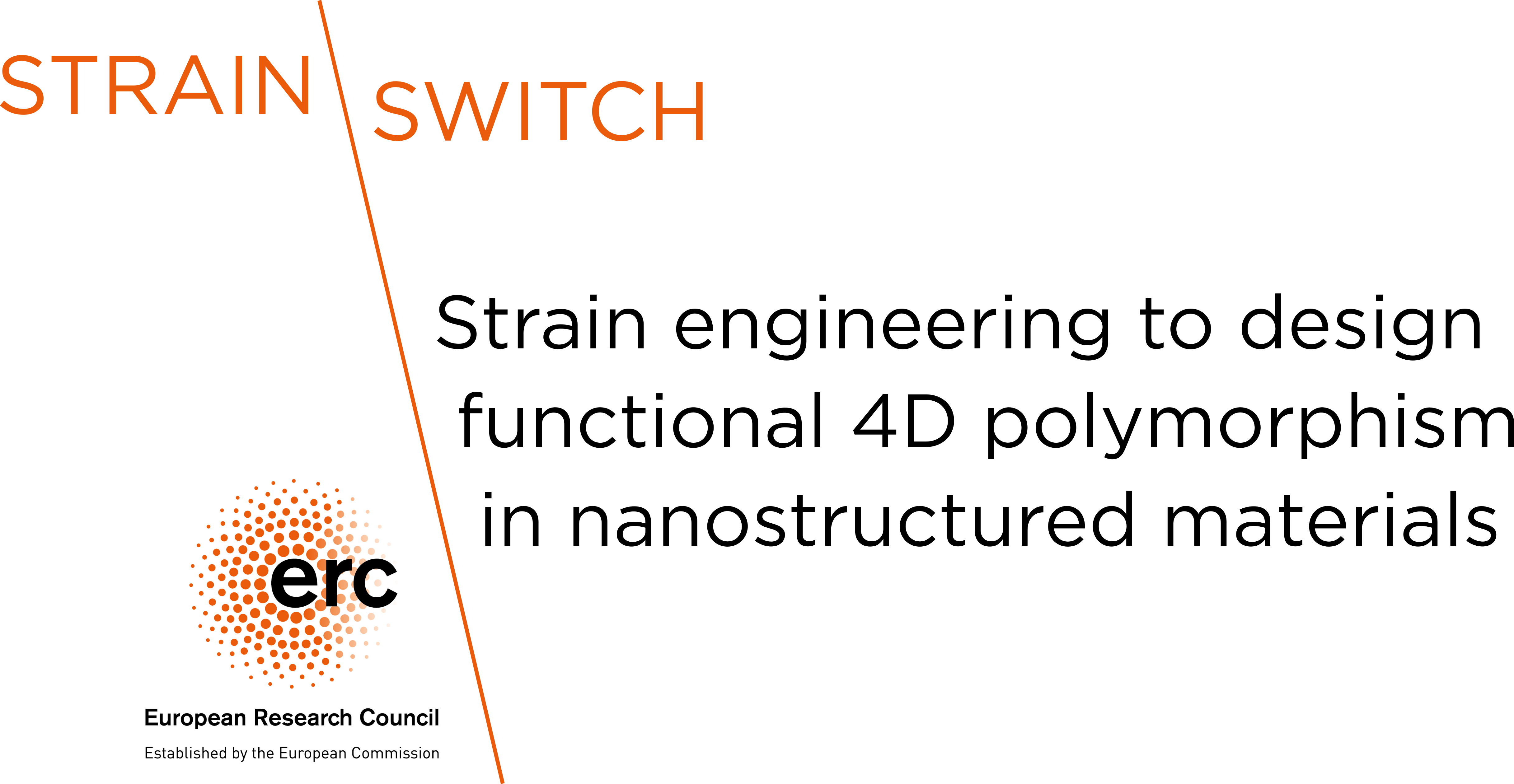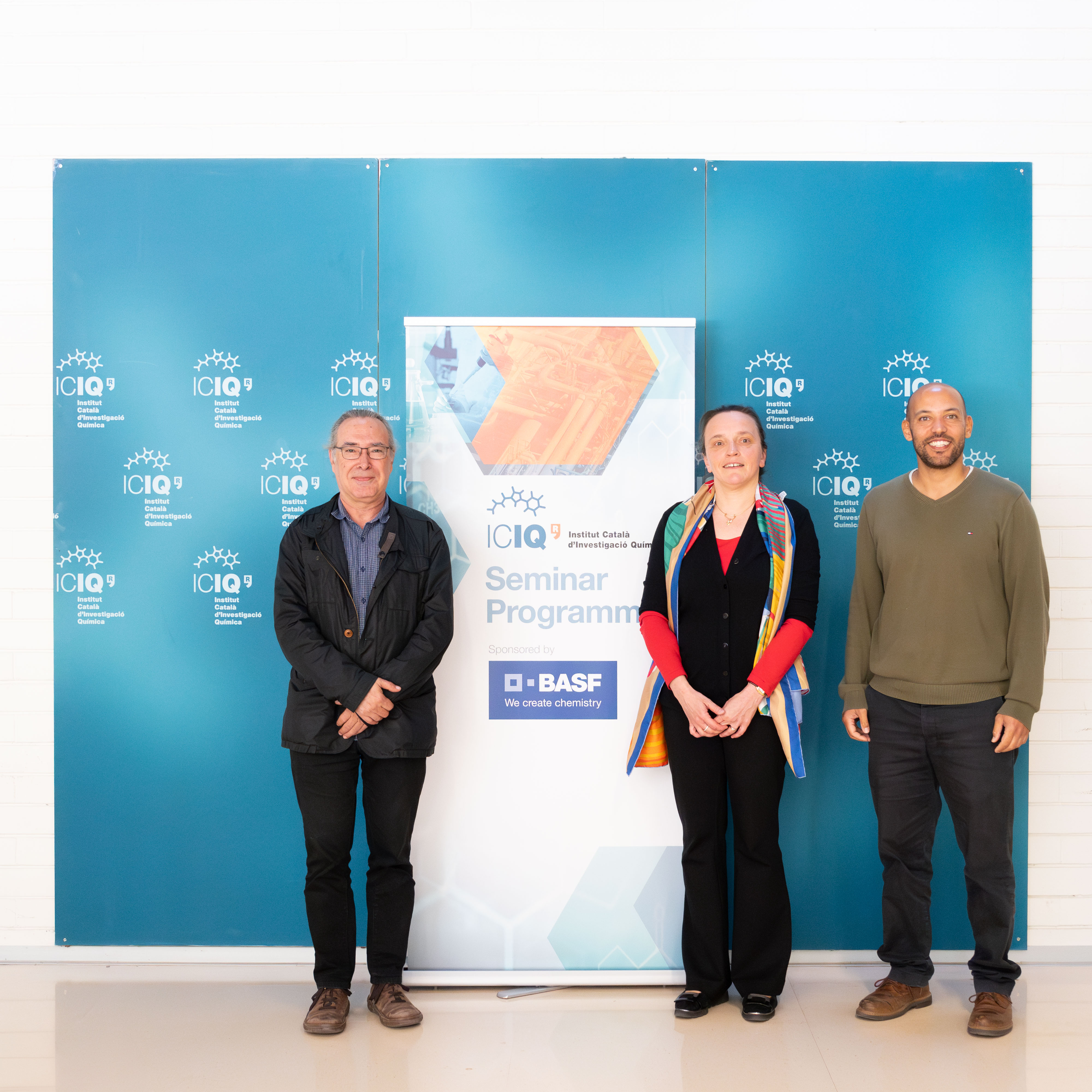
The Rogge group, embedded within the multidisciplinary Center for Molecular Modeling (molmod.ugent.be) at Ghent University, Belgium, is looking for a highly motivated Ph.D. researcher to strengthen our team by performing state-of-the-art computational research in functional materials design. The Ph.D. candidate will investigate how interfaces and long-range disorder in metal-organic frameworks and metal halide perovskites impact their tendency to undergo phase transitions. This requires developing a multistep approach to determine (i) which types of interfaces and long-range disorder are likely to occur in these materials, (ii) how these features can be modelled accurately at currently inaccessible time and length scales, and (iii) how they alter polymorphism in these materials. Answering these questions is vital to understanding how these realistic, finite-sized materials can be adopted in applications.
This position fits within a recent Starting Grant (StG) STRAINSWITCH awarded to prof Sven M. J. Rogge by the European Research Council (ERC). This grant aims to establish strain engineering as a new in silico approach to designing functional nanostructured materials (see, e.g., doi.org/10.1016/j.matt.2023.02.009). We especially welcome candidates with a strong track record who are – or may become – eligible to apply for a prestigious Ph.D. fellowship at our national funding agency or wish to prepare for a European fellowship.
More info about STRAINSWITCH and the different research topics within this ERC StG project
It is often easy to observe the ability of polymorphic materials to undergo a phase transition through changes in colour, conductivity, photovoltaic efficiency, or other functional properties. In contrast, it is challenging to control under which external stimuli, such as stress, temperature, or adsorption, these materials switch. Yet, enabling such polymorphic materials design would be a game changer for pressing societal challenges, from access to drinking water to producing green energy. However, this requires a firm understanding of how changing a material’s structure impacts its polymorphism and macroscopic function.
STRAINSWITCH aims to transform polymorphic material design by establishing the strain engineering concept. The central characteristic of this in silico approach is strain: the extent to which a material deforms due to external or internal triggers. On the one hand, external stimuli generate strain, even before they activate a phase transition. On the other hand, spatial disorder in a structure, tuneable from the atom to the device scale, also induces strain which interferes with external strain fields. Our fundamental idea is that it is possible to systematically predict which disorder is needed to ensure polymorphism only occurs under well-defined external triggers by balancing these internal and external strain fields.
Don't hesitate to contact prof Rogge (Sven.Rogge@UGent.be) for informal inquiries or more information.
More info about the CMM
The CMM groups about 40 researchers from the Faculty of Science and the Faculty of Engineering and Architecture at Ghent University with molecular modelling interests. It is unique in the university as it clusters computational researchers with various backgrounds, from multiple departments and faculties. The CMM aims to model molecules, materials & processes at the nanoscale by bringing together physicists, chemists, and (bio-)engineers while stimulating collaborations across disciplines. This multidisciplinary collaborative mission is the DNA of the CMM and is crucial in achieving scientific excellence in molecular modelling.
The CMM focuses on frontier research in six primary areas: computational material research on the nanoscale, model development, spectroscopy, many-particle physics, chemical kinetics in nanoporous materials, and bio-organic & organic chemistry. Our research is performed within a strong network of partners at Ghent University and at an (inter)national level. To pursue excellence, we strongly stimulate interactions between the various researchers in our team and our vast network of national and international partners. The prospective candidates will join a strongly connected research team and collaborate with national and international academic partners. The research of the CMM is internationally regarded to be at the forefront of its field.
Who are we looking for?
We are looking for a highly motivated Ph.D. candidate with:
- a Master’s degree or an international equivalent in physical chemistry, chemical physics, condensed matter physics, statistical physics, theoretical physics, or a related field obtained before your first working day at the CMM.
- demonstrated experience with coding (Python, C, etc.) and quantum chemistry software (Gaussian, VASP, CP2K, etc.) or force-field-based simulations is an advantage;
- a strong interest in molecular modelling;
- excellent research and scientific writing skills;
- perseverance and an independent, proactive working style;
- the willingness to look beyond the borders of your discipline and a solid motivation to work in a multidisciplinary team;
- high-level written and oral English communication skills with the ability to represent the research team effectively internally and externally, including presenting research outcomes at national and international conferences;
- above all, the ambition to be at the forefront of in silico nanostructured materials design.
What can we offer you?
A 4-years contract with an attractive salary. The selected candidate will moreover get the ability to strengthen their CV within the context of a strongly motivated and multidisciplinary research team and have the ability to contribute to challenging topical research to solve critical societal questions. They will have the opportunity to attend various international conferences and to include research stays in prominent international research teams in this field. Ghent University boasts a strong community that offers a broad range of training and career possibilities for Ph.D. candidates. The training opportunities focus on research and transferable skills such as time management, presentation, and leadership skills.
How to apply?
We intend to fill this position as soon as possible, preferably in or before January 2025. Complete applications will be considered on receipt, with interviews occurring on a rolling basis until the position is filled. Interested candidates are requested to prepare the following documents:
- the filled out application form (see 2024-08_ApplicationForm_ERC_SR.docx underneath);
- a one-page cover letter/motivation letter explaining your interest in these positions, how you fit into the propfile, and how you would tackle this research;
- a curriculum vitae;
- copies of your Bachelor’s and Master's diploma and transcript (certified record of entire enrollment history at educational school), all merged together. Diplomas and transcripts not in Dutch or English should have an official translation in English.
The files should be saved as four separate PDFs and named as follows:
Application_STRAINSWITCH_PhD_[YourName]_[FileNumber1-4AsListedAbove]
In one mail, these four documents should be sent to Sven.Rogge@UGent.be with the subject “Application STRAINSWITCH YourName”.
Please be aware that only complete applications will be considered.








